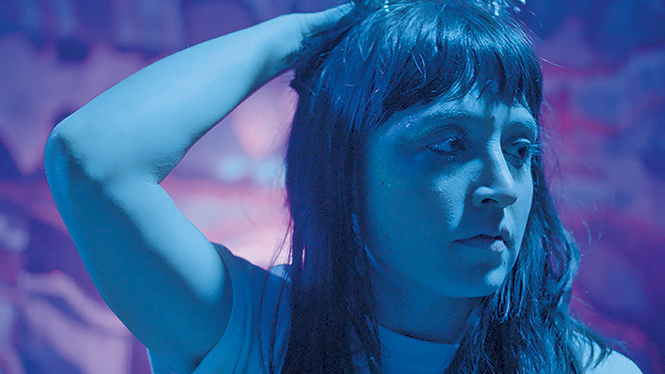
- Wolfe Releasing
Utah Film Center's annual Damn These Heels Film Festival might not be taking place in its traditional home at the Rose Wagner Center, but make no mistake—it's still taking place. The showcase of 19 LGBTQ-themed documentaries and narrative features from around the world has moved to a virtual space for 2020, beginning 10 a.m. Friday, July 10. Here's a look at a few of the titles that were available for preview; visit utahfilmcenter.org/damntheseheels/dth2020 for additional program information.
Dog Valley: Director Dave Lindsay's documentary digs into an infamous 1980s Utah true-crime narrative in a way that's so thorough, it's almost hard to find the central idea. In November 1988, Gordon Church—a 28-year-old gay Southern Utah University student—was murdered in what appeared to be a hate crime, with suspects Michael Archuleta and Lance Wood both pointing fingers at the other as to which one actually killed Church. Dog Valley doesn't really attempt to answer that question, though Lindsay explores the respective lives of Archuleta and Wood with plenty of detail. The combination of dramatized re-creations, interviews and police recordings provides a grim portrait of the crime itself, and Church's friends allow him a chance to emerge as a person aside from his sad end. With so much ground to cover—the differing legal fates of Archuleta and Wood; the history of hate-crime legislation in Utah; Wood's amazing ability to woo multiple women while imprisoned—Lindsay finds plenty of individually fascinating threads, even if the way in which they're woven together doesn't always tell one cohesive story.
Jules of Light and Dark: The title character is actually the least significant of the three central players in writer/director Daniel Laabs' story: Maya (Tallie Medel) and her girlfriend Jules (Betsy Holt) are found by Freddy (Robert Longstreet) when Maya's car crashes and leaves both of the women injured, beginning a series of events that changes all of their lives. The two storylines of Maya and Freddy run mostly parallel for much of the running time, which feels like a missed opportunity to explore the potential connection between them—Maya estranged from her parents after coming out as gay, and Freddy still living mostly closeted while estranged from his grown children. But both of the central performances are terrifically understated, capturing people whose loneliness comes from still trying to figure out who they are. Emotional catharsis isn't on the agenda here, as much as watching people wrestle with what they need in their lives to feel whole.
Same-Sex Attracted: If co-directors Maddy Purves and Zoie Young had made just another documentary about being gay in a conservative culture, it would have felt rote and predictable. Instead, they explore their subject—LGBTQ-identifying students at LDS church-run Brigham Young University—with a complexity that might leave you feeling both encouraged and infuriated. The focus is on a handful of students over the course of the 2017-2018 academic year, many of them involved in BYU's un-sanctioned LGBTQ support group Understanding Sexuality, Gender and Allyship (USGA), at a time when the university was exploring allowing some form of official LGBTQ group. Along the way, the filmmakers capture a sense of progress at openly gay and openly trans people even being possible at BYU, while still conveying the pain inflicted by an Honor Code that treats same-sex couples holding hands as the immoral equivalent of an opposite-sex couple having sex.
Transkids: An Israeli television reality series gets edited for feature length in director Hilla Medalia's profile of four transgender teens in Israel: three trans boys (Noam, Ofri and Liron) and one trans girl (Romy). Much of the content is unsurprising given the subject matter, whether it's the complicated emotions of parents trying to come to terms with their child's transition—including a father who bluntly suggests that he might have wanted to have his trans son aborted if he'd known what was coming—or the nuts-and-bolts of teens preparing for surgeries and hormone therapy. It's much more interesting, however, when dealing with topics specific to the Israeli setting, like how these youth approach the challenge of the country's required military service, or making peace with their faith. Medalia's straightforward approach bypasses most overt drama—leaving aside Romy's participation in a beauty contest—to tell simple but affecting stories of young men and women becoming the people they've always known they were.